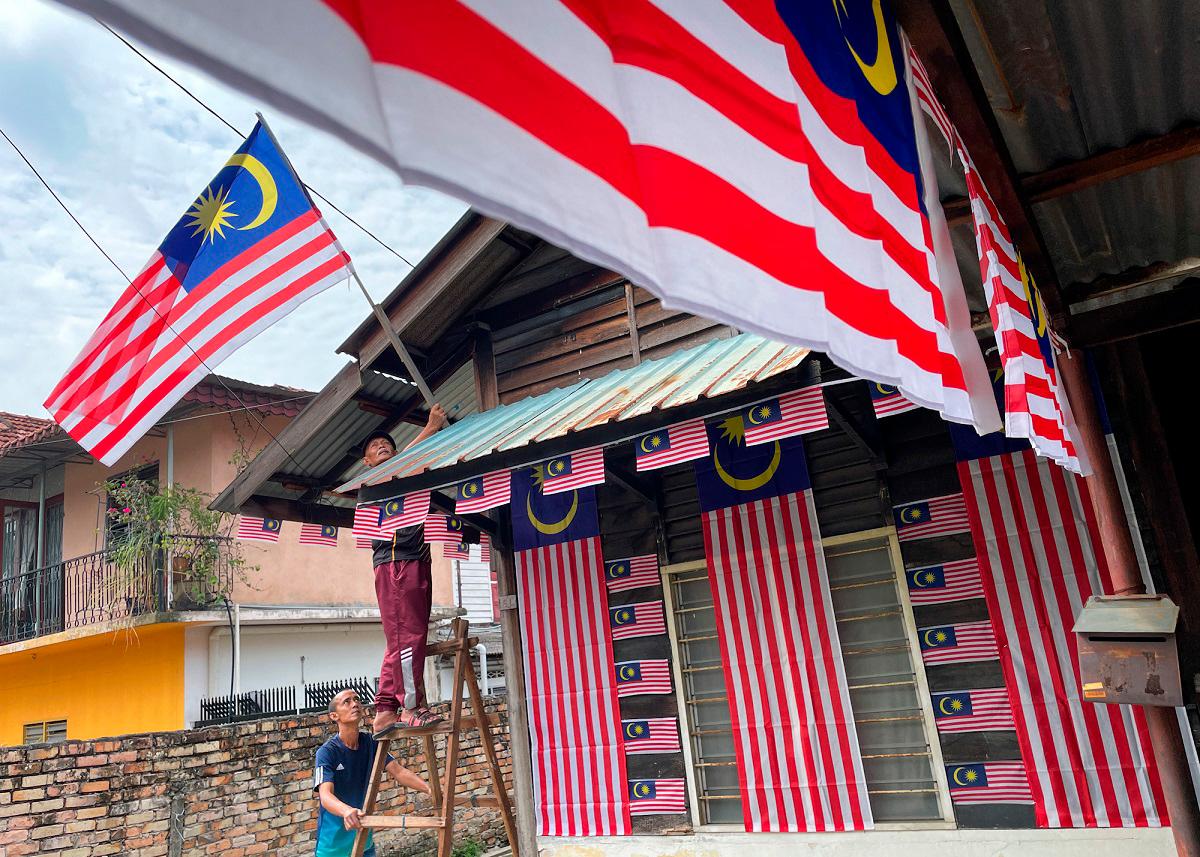PETALING JAYA: From upside-down flags to worn-out banners, Malaysians are finding themselves fined and reprimanded but critics warn that heavy-handed enforcement could kill the very spirit of patriotism it seeks to protect.
Recent arrests and warnings over the improper display of the Jalur Gemilang have reignited debate on whether strict enforcement instils respect or instead deters citizens from flying the national flag.
Universiti Malaysia Kelantan Faculty of Language Studies and Human Development senior lecturer Assoc Prof Dr Mohd Nawi Ismail said flying the Jalur Gemilang upside down, whether intentional or accidental, is unacceptable, with such cases often rising during the Merdeka Month.
“All Malaysians, regardless of race and religion, as well as foreigners living here, must respect and honour the flag.
“This includes displaying it properly, replacing damaged flags and disposing of them respectfully,” he said.
Mohd Nawi added that respect for the Jalur Gemilang reflects national unity and projects a positive image of Malaysia abroad, stressing that the flag should unite Malaysians, not divide them.
Retired International Islamic University Malaysia law professor Dr Ainul Jaria Maidin explained that misuse or incorrect display of the flag is an offence under Malaysian law.
She said the Emblems and Names (Prevention of Improper Use) Act 1963 (Act 414) makes it illegal to misuse or alter national emblems, including the Jalur Gemilang, with penalties of up to RM20,000 fine, three years’ jail or both.
“For minor cases such as flying the flag upside down, local authorities often act under the Minor Offences Act 1955, issuing smaller fines before escalating to prosecution under Act 414,” she said.
However, Ainul Jaria cautioned that the law does not distinguish between genuine mistakes and deliberate misuse, and prosecutors need only prove improper use, not intent.
“This risks discouraging people from flying the flag altogether. In some countries, overly punitive flag laws have reduced civic participation instead of strengthening national pride,” she said.
She added that while laws draw boundaries, genuine patriotism is best fostered through education and awareness.
She said campaigns in schools, communities and on social media are more effective in building respect than fear of fines.
“Strict enforcement risks creating hesitation, while education turns the Jalur Gemilang into a living symbol of unity and pride,” she said, urging more cultural sensitivity in outreach campaigns.
“Not all groups share the same historical narratives or have equal access to official guidelines. By recognising Malaysia’s diversity, we not only uphold the dignity of the flag but also strengthen national pride across all communities.”









